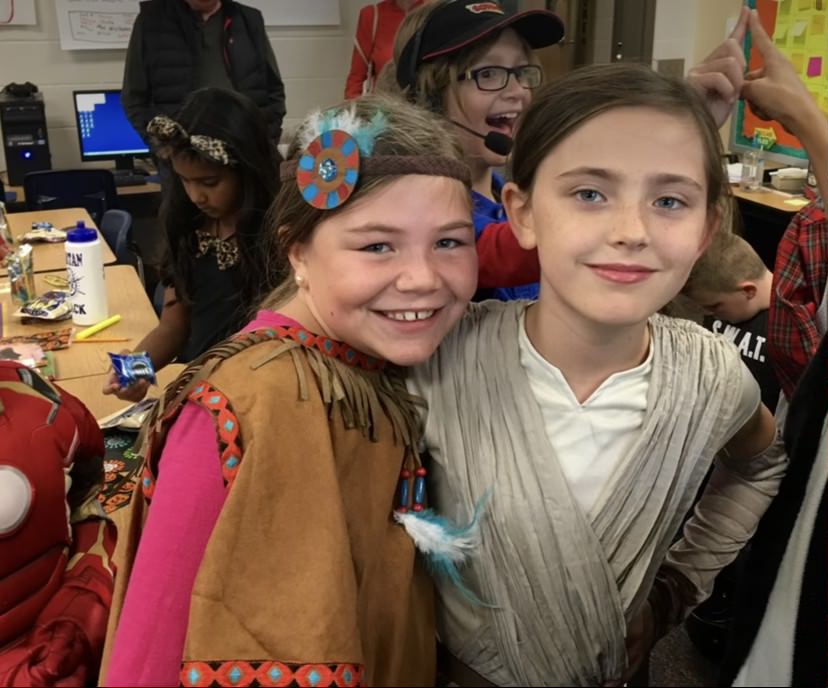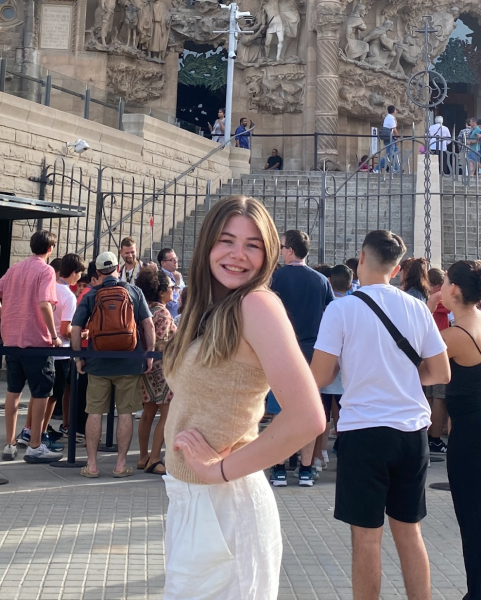Halloween is the one day where everyone dresses up in whatever costume they’d like. However, it’s also a season that provides a perfect opportunity to educate oneself about the harm of cultural appropriation.
If a person walks into a costume store, they will see costumes labeled with the name of a culture or group, whether that be ‘Native American,’ ‘Egyptian,’ or other minority groups or practices. These costumes are cultural appropriation, defined as, the adoption of a minority cultural or subcultures by a person of a majority group or culture.
Costumes are not the only problem. Participating in blackface or wearing hairstyles of an ethnic group is also appropriation. Cultural appropriation also applies to homophobic costumes, transphobic costumes and costumes representing people with mental illnesses, like a straight jacket Halloween costume.
Halloween attire should be lighthearted, so it is important to avoid insulting costumes. In a world of technology, avoiding cultural ignorance is simple, yet many people are ill-informed on the topic of cultural appropriation and unintentionally participate.
Junior Katelyn Chen believes most appropriation happens by accident.“I think cultural appropriation is definitely apparent in Halloween costumes, but I think most of it is unintentional. Like, for example, if a young girl that has no connection to Native Americans dressed up as Pocahontas, that could be seen as cultural appropriation, but it likely was not intentionally ignorant.”
The characters of Pocahontas and Moana are popular costumes, especially for children. There is nothing distasteful about a kid looking up to a character of a different culture than themself–in fact, it is valuable for kids to grow up seeing diverse characters like those that represent Somoan culture and heritage. They may simply be putting on a costume that represents a character of a group that faced oppression and rarely saw their culture in mainstream media.
Many also neglect normalized costumes as cultural appropriation. The state of Hawaii has been a tourist destination for decades because of its beautiful landscapes and culture, but this should not provide inspiration for a costume. Hawaii’s unique culture is separate from the American mainland’s culture, so mainlanders should not think dressing up as a Hawaiian individual is acceptable.
Chen recognized how often western society neglects cultural appropriation with Hawaiian costumes. “Something I see often is Hawaiian themed outfits, which is something I’m guilty of too. Especially with the environmental problems going on in Hawaii, it’s more important now to be more mindful of other factors that could contribute to cultural appropriation,” said Chen.
Junior Nadia Meeks also noted the consequences of cultural appropriation: “Cultural appropriation could be harmful to the people of that culture because it reduces their identity down to a stereotype. Many pop stars have worn sexualized versions of traditional Asian clothing, and it could serve to sexualize the entire culture,” said Meeks.
Cultural appropriation can also paint a culture as exotic, further pushing westernized standards for culture and appearance.
The ignorance perpetuating cultural appropriation begins as early as elementary school. At Pleasant Valley and schools across the country, classes roll-played the first Thanksgiving. Meeks recalled this roll-play. “Although not for Halloween, I remember in early elementary school teachers dressed half the students as Native Americans for a recreation of Thanksgiving,” she explained.
In elementary school, students only learned sugar-coated stories to describe the oppression Native Amercans faced. In the early elementary years, most students are not knowledgeable enough to understand the implications of dressing as a Native American individual. It is crucial that parents and educators use their significant roles in kids’ lives to avoid normalizing cultural appropriation. Rather, adults should educate their kids about cultural groups and preach acceptance and inquisitiveness to reach further understanding about other cultures.
As Halloween approaches, it’s important to self-monitor oneself to ensure appropriate costume choices. The Halloween season is the perfect opportunity to do this, turning appropriation into appreciation.









